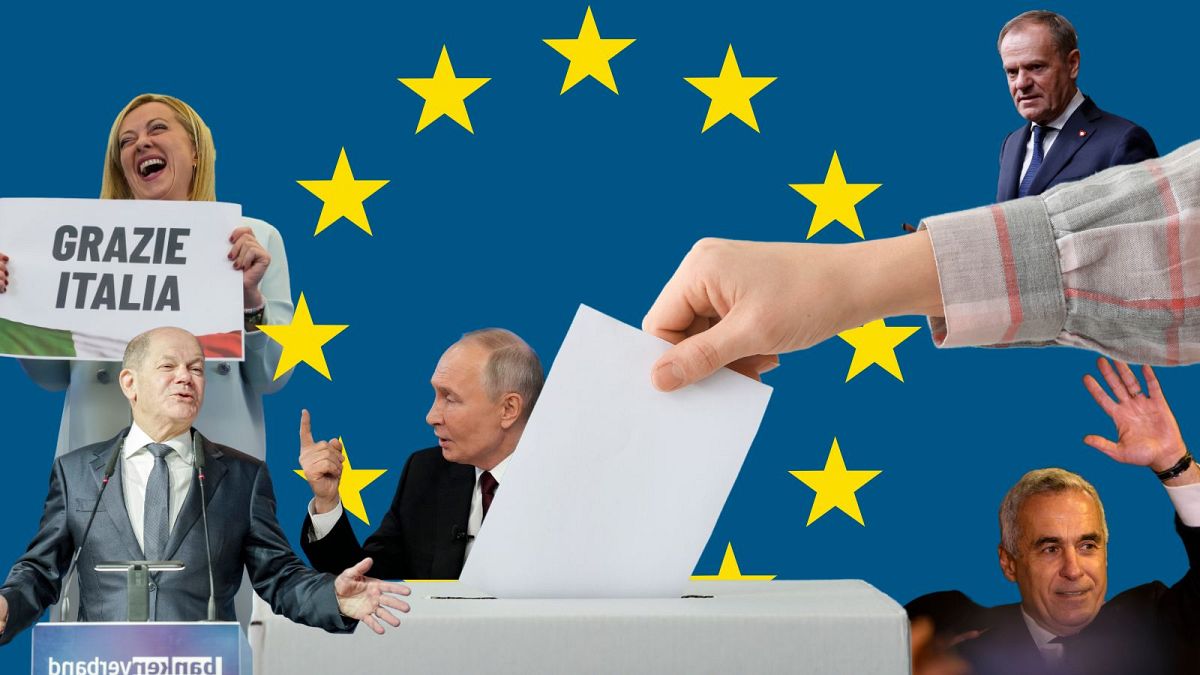The year 2025 is set to be a pivotal one for Europe, with a slew of important elections taking place that could reshape the political landscape of the European Union. From Germany’s snap Bundestag vote to Romania’s presidential race, and Poland’s referendum on Tusk’s government, these contests are expected to bring about major shifts in power across the continent. Additionally, populist forces in countries like Czechia, Norway, and beyond are on the rise, adding an element of uncertainty to the political climate in Europe.
In Germany, a snap election is scheduled for February 23 following a vote of no-confidence on Chancellor Olaf Scholz. The campaign has been marked by anti-immigration sentiment in the wake of an attack at a Christmas market, with the AfD party polling at 20% behind the CDU/CSU. The election could see Friedrich Merz, a potential future chancellor, leading a more economically liberal and socially conservative government. Romania is also gearing up for a tense presidential race after concerns over foreign meddling, with a new vote expected to take place in the first half of 2025.
Meanwhile, Poland’s upcoming presidential elections in May are shaping up to be a test of support for the government led by Donald Tusk, with the Civic Platform facing off against the Law and Justice party. In Italy, local elections in September could challenge the stability of the current government, while in Czechia, parliamentary elections in October may strengthen a far-right axis in Central Europe led by populist Andrej Babiš. Croatia is also preparing for the reelection of President Zoran Milanović, a self-proclaimed nationalist, in a run-off on 12 January.
Across the English Channel, the UK will hold county council elections in May to test whether Labour’s victory last year will translate into lasting support. Belarus, on the other hand, is expected to see little change in its political landscape during the upcoming presidential election in January following widespread fraud and repression in the 2020 election. In Russia, concerns over the fairness of the upcoming elections are growing, with media freedom remaining restricted and political opponents facing repression.
In Norway, parliamentary elections in September will indicate a shift towards right-wing parties, with the far-right Progress Party expected to see a doubling of its vote share. Meanwhile, Ireland is set to elect a new president by November, Georgia is facing pro-Russian interference as it heads to the polls in October, and Moldova is bracing for legislative elections following attempts at Russian interference in a disinformation campaign. Albania and Kosovo are also gearing up for parliamentary elections in May and February, respectively, amid political polarization and competing visions for the future of these nations.
Overall, the political landscape in Europe in 2025 is set to be tumultuous, with key elections across the continent likely to bring about major shifts in power and influence. From rising populist forces to concerns over foreign meddling, these contests are expected to shape the future of the European Union and its member states in the years to come.











